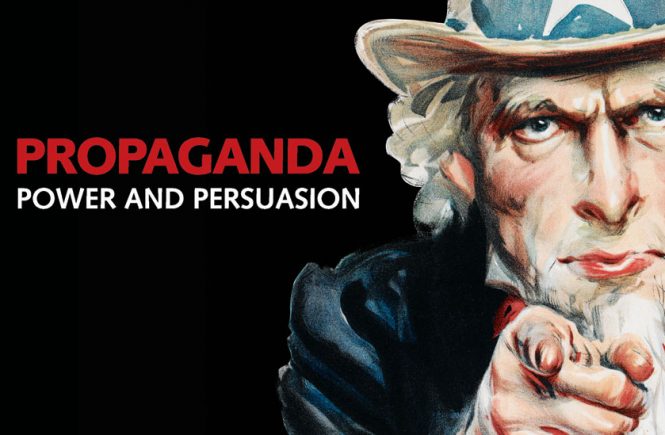Should the power of propaganda be used for democratic ends (the Lasswell/Lippmann view), or because propaganda, by its very existence, was antidemocratic, was education the best way to deal with it (the Dewey view)? The disagreement over the proper place of propaganda in a democracy was no theoretical exercise. Social scientists believed the fate of the country, the world in fact, rested on its outcome. In 1937, the threat of external propaganda was so great that a group of social scientists, journalists, and educators founded the Institute for Propaganda Analysis with the goal of orchestrating a nationwide educational effort to combat its effects. During the four years of its existence, the institute was quite productive, generating numerous pamphlets, books, and articles explaining how propaganda works (read more about propaganda techniques in the box entitled “Applying the Seven Propaganda Techniques”). The institute was successful in developing an antipropaganda curriculum adopted by […]
REACTION AGAINST EARLY PROPAGANDA THEORY
Lasswell and Lippmann’s propaganda theories seemed to carry the weight of realworld proof—the globe had been engulfed by a devastating world war, The War to End All Wars in fact, yet global turmoil continued to rage. These conflicts were infused with sophisticated and apparently successful propaganda. Yet there was opposition. One prominent critic of propaganda theory was philosopher John Dewey. In a series of lectures (Dewey, 1927), he outlined his objections to Lippmann’s views. Throughout his long career, Dewey was a tireless and prolific defender of public education as the most effective means of defending democracy against totalitarianism. He refused to accept the need for a technocracy that would use scientific methods to protect people from themselves. Rather, he argued that people could learn to defend themselves if they were only taught the correct defenses. He asserted that even rudimentary public education could enable people to resist propaganda methods. Dewey […]
WALTER LIPPMANN’S THEORY OF PUBLIC OPINION FORMATION
WALTER LIPPMANN’S THEORY OF PUBLIC OPINION FORMATION. Throughout the 1930s, many other members of the social elite, especially those at major universities, shared Lasswell’s vision of a benevolent social science–led technocracy. They believed that physical science and social science held the keys to fighting totalitarianism and preserving democracy. As such, Lasswell’s work commanded the attention of leading academics and opinion leaders, including one of the most powerful opinion makers of the time—Walter Lippmann, a nationally syndicated columnist for the New York Times. Lippmann shared Lasswell’s skepticism about the ability of average people to make sense of their social world and to make rational decisions about their actions. In Public Opinion (1922), he pointed out the discrepancies that necessarily exist between “the world outside and the pictures in our heads.” Because these discrepancies were inevitable, Lippmann doubted that average people could govern themselves as classic democratic theory assumed they could. The […]
HAROLD LASSWELL’S PROPAGANDA THEORY
Lasswell’s theory of propaganda blended ideas borrowed from behaviorism and Freudianism into a particularly pessimistic vision of media and their role in forging modern social orders. Lasswell was one of the first political scientists to recognize the usefulness of various psychological theories and to demonstrate how they could be applied to understanding politics. The power of propaganda was not so much the result of the substance or appeal of specific messages but, rather, the result of the vulnerable state of mind of average people. This state of mind can be assessed using psychological theories. Lasswell argued that economic depression and escalating political conflict had induced widespread psychosis, and this made most people susceptible to even crude forms of propaganda. When average people are confronted daily by powerful threats to their personal lives, they turn to propaganda for reassurance and a way to overcome the threat. In Lasswell’s view, democracy has […]
FREUDIANISM IN PROPAGANDA
Freudianism, on the other hand, was very different from behaviorism, though Sigmund Freud shared Watson’s skepticism concerning people’s ability to exercise effective conscious or rational control over their actions. Freud spent considerable time counseling middle-class women who suffered from hysteria. During hysterical fits, seemingly ordinary individuals would suddenly “break down” and display uncontrolled and highly emotional behavior. It was not uncommon for quiet and passive women to “break down” in public places. They would scream, have fits of crying, or become violent. Often these outbursts occurred at times when the likelihood of embarrassment and trouble for themselves and others was at its highest. What could be causing this irrational behavior? To explain hysteria, Freud reasoned that the self that guides action must be fragmented into conflicting parts. Normally one part, the rational mind, or Ego, is in control, but sometimes other parts become dominant. Freud speculated that human action is […]
BEHAVIORISM THEORY IN PROPAGANDA
John B. Watson, an animal experimentalist who argued that all human action is merely a conditioned response to external environmental stimuli, first popularized stimulus-response psychology. Watson’s theory became known as behaviorism in recognition of its narrow focus on isolated human behaviors. Behaviorists rejected psychology’s widely held assumption that higher mental processes (that is, conscious thought or reflection) ordinarily control human action. In contrast to such “mentalist” views, behaviorists argued that the only purpose served by consciousness was to rationalize behaviors after they are triggered by external stimuli. Behaviorists attempted to purge all mentalist terms from their theories and to deal strictly with observable variables—environmental stimuli on the one hand and behaviors on the other. By studying the associations that existed between specific stimuli and specific behaviors, behaviorists hoped to discover previously unknown causes for action. One of the central notions in behaviorism was the idea of conditioning. Behaviorists argued that […]
